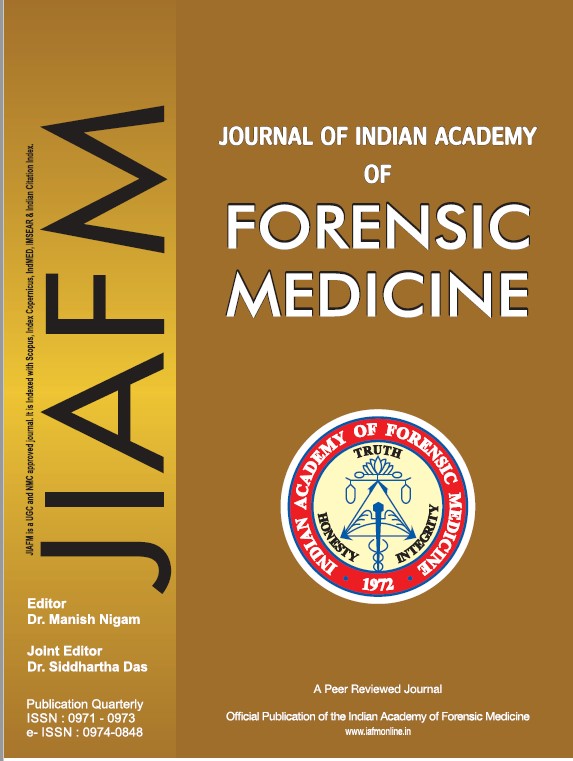Prevalence of Oppositional Defiant Disorder and Conduct Disorder in Primary School Children
DOI:
https://doi.org/10.48165/Keywords:
Oppositional Defiant Disorder, Conduct Disorder, Child Behavior Questionnaire (CBQ), Diagnostic Statistical Manual-IV-Text Revised (DSM-IV-TR)Abstract
There is a lacuna of studies on Oppositional Defiant Disorder (ODD) and Conduct Disorder (CD) in the Indian context. Present study is undertaken as a cross sectional study of school aged children selected from four different schools in Indore district. Nine hundred children aged between 6 and 11 years were selected from four schools of Indore city after obtaining informed consent from their parents and the school authorities. The presence of ODD and CD was assessed by using Rutter CBQ and those who were screened positive were subjected to DSM-IV-TR criteria for the final diagnosis. The prevalence of ODD among primary school children was found to be 7.73%. Prevalence was found to be equal among male and female. The prevalence of CD among primary school children was found to be 5.48. Prevalence was found to be higher among the males (66.67%) as compared to that of females (33.33%). The present study shows a high prevalence of CD among primary school children with a higher prevalence among the males than the females and in ODD no difference was found.
Downloads
References
Park K. Textbook of Preventive and Social Medicine. 2006; 18th
edition: 352 (SOURCE – National Family Health Survey NHFS 2,
India 1998-1999).
Earls F. Prevalence of behavioral problems in children- a cross
national replication. Arch Gen Psychiatry. 1982; 37:1153 – 57.
Nikapota AD. Child psychiatry in developing countries. British
Journal of Psychiatry 1991; 158: 743-751.
Malhotra S. Editor, Research endeavors in child and adolescent
psychiatry in India. Proceedings of the 4th Biennial Conference of
Indian Association for Child and Adolescent Mental Health. 1997
Nov 20 – 22 Goa.
Erikson E. Growth and Crises of the Healthy Personality Identify
and the Life Cycle International Universities Press, New York.
:50.
Rutter M, Tizard J, Whitmore K. Education, Health and Behavior:
Psychological & Medical Study of Childhood Development. Wiley
Groups, London. 1970:6.
Kanner KL. “Do behavior symptoms always indicate
psychopathology.” J Child PsycholPsychiat 1960; 1:17–25.
Cameron N. The Psychology of Behaviour Disorder. Houghton
Mifflin, Boston. 1947.
Dulcan MK, Costello EJ, Edelbrock C, Brent D, Janiszewsk IS.
The pediatrician as gatekeeper to mental health care in children: Do
parents concern open the gate? J Am Acad Child Adolesc.
Psychiatry 1990; 29: 453–458.
Park K. Textbook of Preventive and Social Medicine. Banarsidas
Bhanot Publishers, Jabalpur. 2000;16th edition:580.11. Ministry of Health and Family Welfare Health Information of India.
Directorate General of Health Services, New Delhi. 1996:15.
Malhotra S, Malhotra A, Verma V. Child Mental Health in India.
Macmillan India Limited, New Delhi. 1992: 1st edition.
Pain B. The child rearing attitudes of the parents of (male and
female) schizophrenics. Indian J Psychiatry. 1982; 24:147-54.
Mukerji M. Parent personality and adolescent maladjustment.
Indian J Psychiatry 1973; 15:29-31.
Wig NN. Parental deprivation and mental illness: A study of the
incidence of parental death in childhood in 2000 psychiatric
patients. Indian J Psychiatry. 1969; 11:1-6.
Bagadia VN. Significance of paternal and maternal loss in mental
illnesses. Indian J Psychiatry. 1976; 18:59-65.


